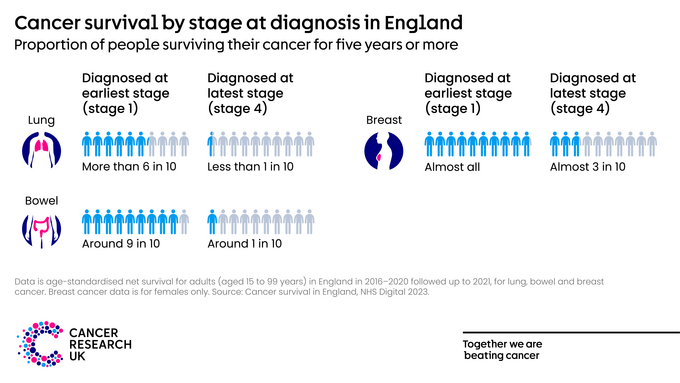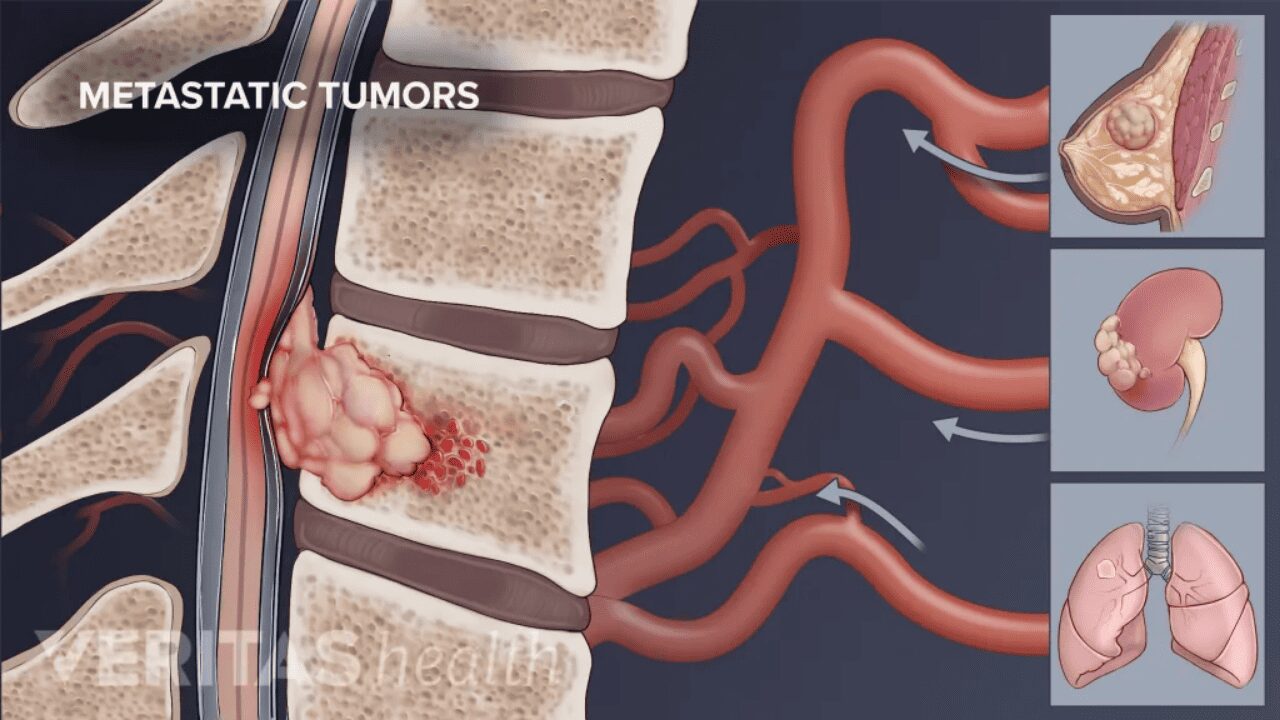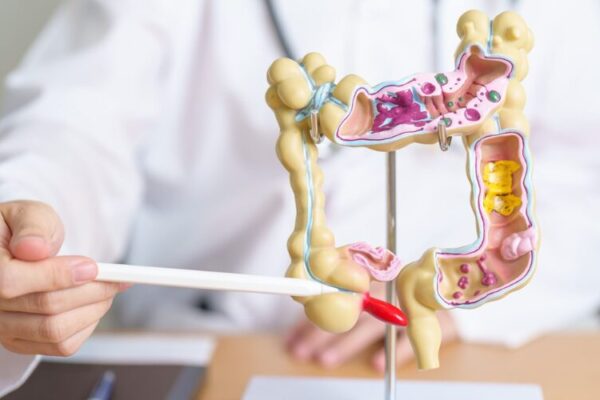
11 Jun Early Warning Signs of Cancer You Shouldn’t Overlook
Early Warning Signs of Cancer You Shouldn’t Overlook
By Island Hospital | June 11, 2025 10:22:00 AM
Ever felt that nagging little something that you just brushed off? What if that tiny whisper was actually your body trying to tell you something significant?
When it comes to cancer, those early whispers can be the loudest lifesavers. It’s about tuning into the subtle signals your body sends, signals that too often get lost in the noise of everyday life.
What you have is the power of catching something early which helps tip the scales towards more effective treatment and brighter outcomes.
Ready to become a more empowered guardian of your own health? Let’s equip you with the knowledge to recognise crucial early signals and guide you through these proactive steps.
Why Early Detection Matters

Early detection of cancer is like having a small fire that is much easier to extinguish than a raging inferno.
Research has consistently demonstrated that cancers caught in their early stages, before they’ve had a chance to spread, are far more responsive to treatment.
This often translates to less aggressive interventions, a greater chance of complete remission, and ultimately, significantly higher survival rates.
Early detection empowers doctors to intervene when the cancer is localised and treatment options are most effective, potentially avoiding more complex and challenging treatments associated with advanced disease.
What Subtle Changes Could Be Early Cancer Warning Signs?
While not all symptoms indicate cancer, it’s important to be aware of any new or worrying changes in your body. Some general cancer symptoms include:
- Lumps or swellings
- Skin changes or new moles
- Persistent cough or breathlessness
- Persistent fatigue
- Unexplained bleeding or bruising
- Unexplained weight loss
Early Symptoms of Different Cancers That You Shouldn’t Ignore
It’s important to reiterate that experiencing these symptoms can also be caused by less serious conditions.
However, being aware of these potential early indicators for specific cancers can empower you to seek timely medical attention if you experience persistent or concerning changes.
Here’s a breakdown of them:
1. Abnormal Lumps or Swelling
Pay close attention to any new or persistent lumps or swelling on or within your body that doesn’t seem to disappear and have them checked by a healthcare professional.
Although swollen lymph nodes in areas like the armpits, groin, or neck often occur during infections, swelling that doesn’t subside after recovery could indicate a more serious issue.

It’s also worth remembering that many lumps, such as lipomas, are simply benign fatty tissue.
Regular self-exams are crucial for detecting subtle changes. Be sure to check for new lumps, dimpling of the skin, changes in skin color, or alterations around the nipple, such as retraction or discharge.
Also, note any unusual changes in breast size or shape. It’s important to remember that breast cancer can affect both males and females, and the symptoms are often similar.
Gain a deeper understanding of breast cancer by watching this video with expert insights from Dr. Goh Tiong Meng.
2. Changes in Bowel or Bladder Habits
Notable and persistent shifts in your routine bathroom habits can sometimes signal cancers affecting the colon, prostate, or bladder.
Be mindful of prolonged constipation or diarrhea, the presence of blood in your stool (appearing red or black and tarry), increased frequency of urination, or blood in your urine.
Despite these symptoms, early colon cancer is often symptom-free, making regular screening a vital tool for early detection and improved treatment outcomes.
3. Chronic Headaches
Headaches that persist for over two weeks and don’t respond to typical remedies might, in rare cases, be associated with a brain tumor.
In brain cancer, tumors can start in the brain (primary) or spread there from other cancers (secondary), and can be noncancerous (benign) or cancerous (malignant) with varying growth rates and sizes, sometimes causing immediate symptoms or growing large silently.
Individuals with suspected brain cancer may also experience persistent vertigo, changes in mental function (e.g. confusion, difficulty concentrating, changes in personality or behavior), and seizures even when there’s no history of it.
4. Indigestion or Trouble Swallowing
Pay attention to recurring issues with your digestive system, as they can sometimes signal underlying problems.
If you frequently experience a sensation of food being lodged in your throat, suffer from persistent heartburn that doesn’t improve with standard over-the-counter antacids, or have ongoing indigestion that seems unrelated to specific foods, it’s important to seek medical advice.
Similarly, difficulty swallowing, known as dysphagia, where you feel like food isn’t passing down easily, can also be a concerning symptom.
These persistent issues might be indicative of cancers affecting the esophagus, stomach, or throat, and a thorough evaluation by a healthcare professional can help determine the cause and ensure timely intervention if needed.
5. Oral Changes
The presence of persistent sores, lesions, or painful areas within the oral cavity is a concerning sign that warrants careful attention, especially for individuals with a history of smoking or heavy alcohol consumption.
These seemingly localized changes can be indicative of underlying cellular abnormalities that may progress into oral cancers.
They can manifest in various forms, including white or red patches (leukoplakia or erythroplakia), ulcers that don’t heal, thickened areas, or lumps. They may or may not be painful initially, but persistent discomfort or pain can develop as the condition progresses.
6. Persistent Cough or Hoarseness
A cough that lasts for weeks and doesn’t improve with typical cold remedies, or a persistent change in your voice, can be a symptom of lung cancer, throat cancer, or other respiratory issues.
These changes occur because the cancer can directly impact the tissues responsible for voice production or indirectly affect them through inflammation or pressure.
Therefore, the persistence of these symptoms, beyond the typical duration of a common cold, should prompt medical attention to identify the underlying cause and ensure timely intervention if necessary.
Learn about the life-saving potential of lung cancer screening in this discussion with Dr. Cheah Soon Keat.
7. Persistent Pain

Pain that lasts in any part of your body without a clear reason and doesn’t improve with standard treatments warrants medical attention.
Although this may be associated as a common symptom in many conditions, ongoing pain especially if it’s in a new location or unexplained could possibly indicate that the tumour is pressing on nerves or organs, or through the release of certain chemicals.
8. Skin Changes
Our skin is a large organ and can reflect underlying health issues. New moles, changes in existing moles (in size, shape, color, or texture), sores that don’t heal, or unexplained changes in skin pigmentation (darkening or yellowing) can be signs of skin cancer or, in some cases, other types of cancer that have spread.
Remember the “ABCDE” rule for melanoma: Asymmetry, Border irregularity, Color variation, Diameter (larger than a pencil eraser), and Evolving change.
Another symptom to note would be the occurrence of tiny red spots on the skin (petechiae) which may signify leukemia.
9. Unrelenting Fatigue
Experiencing constant fatigue isn’t just feeling tired after a long day. Cancer-related fatigue is often described as overwhelming, persistent, and not relieved by rest.
It can significantly impact daily functioning. This can be due to the cancer itself, the body’s immune response, or anemia.
Cancer cells greedily take up more energy than normal cells and process it inefficiently, which drains the body’s resources and contributes to overwhelming fatigue.
This energy drain, along with the body’s response to the cancer, results in the severe tiredness experienced by many patients.
10. Unusual Bleeding or Pelvic Pain
Any bleeding or discharge that is not normal for you should be investigated.
This includes blood in stool or urine, unexpected bleeding from the vagina, rectum, or bladder, or nipple discharge which could be linked to various cancers.
During menstruation, it is common to experience occasional period changes or cramps but ongoing pelvic pain or significant alterations in your menstrual cycle could be an alerting issue linked to cancers of the cervix, endometrium, or ovaries.
Hope to expand your knowledge on stomach cancer? This article on a guide to early stomach cancer by Dr. Robert Ding has all the details you need!
When Should I Visit a Doctor?
Not all symptoms mean cancer, but persistence or unusual patterns warrant attention. It’s recommended to seek medical advice if:
- A symptom lasts more than 2 weeks
- There are multiple symptoms
- It’s impacting daily life or feels unusual for the person’s body
What to Expect at Your Cancer Appointment
When you go for a cancer appointment, it’s natural to feel a mix of emotions. Knowing what to expect can help ease some of that anxiety and allow you to be more engaged in the process.
Here’s a more detailed look at what might happen at Island Hospital:
1. In-Depth Discussion of Your Symptoms
Your doctor will likely start by asking you detailed questions about the symptoms you’ve been experiencing. Be prepared to describe:
- The symptoms
- Location of symptoms
- When the symptoms started
- How often it occurs
- Severity of the symptoms
- What makes it better or worse
- If there are any other associated symptoms
Don’t hesitate to bring a written list of your symptoms and any questions you have.
2. Review of Your Lifestyle and Diet
Your doctor will want to understand your overall health and any potential risk factors. This may involve questions about your:
- Medical history
- Family history of cancer
- Lifestyle habits
- Diet
During this process, it is important to be honest and thorough in your responses, as this information helps your doctor build a comprehensive picture of your health.
3. Physical Examination
Depending on your symptoms and the type of cancer suspected, your doctor will perform a physical examination. This might involve:
- General assessment: Checking your vital signs (blood pressure, heart rate, temperature), looking for any visible signs like paleness or jaundice, and assessing your overall well-being.
- Specific examination: This will focus on the area of concern. For example, if breast cancer is suspected, the doctor will carefully examine your breasts and lymph nodes. If you’re experiencing abdominal pain, they will palpate your abdomen.
4. Ordering Diagnostic Tests
To get a clearer picture and determine if cancer is present, your doctor will likely order various diagnostic tests. These can include:
- Imaging scans
- Biopsies
- Other specialized tests (e.g. bone marrow biopsies, lumbar punctures, or genetic testing)
5. Discussion of Potential Treatment Plans
If the diagnostic tests indicate the presence of cancer, your doctor will begin to discuss potential treatment plans.
This is a crucial conversation, and it’s important to ask questions and be actively involved. The discussion may include:
- The type and stage of cancer
- Treatment options
- Goals of the treatment
- Potential side effects
- Treatment timeline
- Supportive care
- Clinical trials
As this initial discussion is often just the beginning, further appointments might be needed with specialists to develop a detailed and personalised treatment plan.
It’s also a good idea to bring a notebook to jot down information and consider bringing a trusted friend or family member for support.
Who Should I Consult? (Oncologists)
When facing a cancer diagnosis or suspecting you might have cancer, knowing who to consult is a critical first step. Oncologists are the medical specialists who focus on the diagnosis, treatment, and prevention of cancer.
At Island Hospital, we have a committed team of oncologists who collaborate within a multidisciplinary framework.
Our Oncology Centre and Oncology Speciality bring together a multidisciplinary team of experts, including medical oncologists, surgical oncologists, radiation oncologists, hematologist-oncologists (for blood cancers), and palliative care specialists, all working collaboratively to deliver the best possible outcomes for our patients.
Let’s embark on this journey together, as partners, united in our pursuit of recovery and a renewed sense of well-being. To gain a deeper understanding of the patient experience at Island Hospital, we invite you to watch this video.
Put Your Health First
Your body whispers when something isn’t right. Don’t ignore those subtle cues.
Connect with the compassionate and highly skilled oncology experts at Island Hospital.
We’re here to provide clear answers and a personalised path forward, tailored to your unique needs. Schedule an Appointment With Island Hospital Today!
FAQ
What are the survival rates for cancer?
Cancer survival rates are heavily influenced by a multitude of factors, most notably the specific type of cancer and the stage at which it is diagnosed.
For instance, some cancers, like certain types of skin cancer or early-stage Hodgkin lymphoma, have very high survival rates, often exceeding 90% at 5 years.
Survival rates are often presented as a 5-year survival rate, which is the percentage of people with a specific type and stage of cancer who are alive five years after their diagnosis.
It’s important to remember that these are statistical averages and individual outcomes can vary greatly. Your oncologist will be able to provide you with more specific survival information based on your individual diagnosis.
Is cancer hereditary?
The relationship between genetics and cancer is complex.
While some cancers have a hereditary component, the vast majority of cancers are not directly inherited.
Understanding your family history of cancer can be important for assessing your risk, but it’s crucial to remember that most people who develop cancer do not have a strong family history of the disease.
How long does it take to treat cancer?
The duration of cancer treatment varies enormously depending on a wide range of factors:
- Type and stage of cancer
- Treatment modality
- Individual response to treatment
- Maintenance therapy
- Palliative care (for advanced cancer stage)
It’s essential to have a detailed discussion with your oncologist about the expected duration of your specific treatment plan. They can provide you with a more accurate timeline based on your individual circumstances.
Can cancer develop without showing any symptoms?
Yes, unfortunately, many cancers, especially in their early stages, can be asymptomatic, meaning they don’t cause any noticeable signs or symptoms. This is a significant reason why regular cancer screening is so vital.
Screening tests, such as mammograms for breast cancer, colonoscopies for colorectal cancer, Pap smears for cervical cancer, and PSA tests for prostate cancer (in some cases), are designed to detect these early, asymptomatic cancers before they spread and become more difficult to treat.
Detecting cancer at an asymptomatic stage often leads to better treatment outcomes and higher survival rates.
Can lifestyle changes really help lower my cancer risk?
Absolutely! A healthy lifestyle offers significant protection against many cancers, and while genetics contribute, lifestyle choices are responsible for a substantial number of cases.
To see this in action, read this article on the direct link between your diet and colon cancer prevention.






